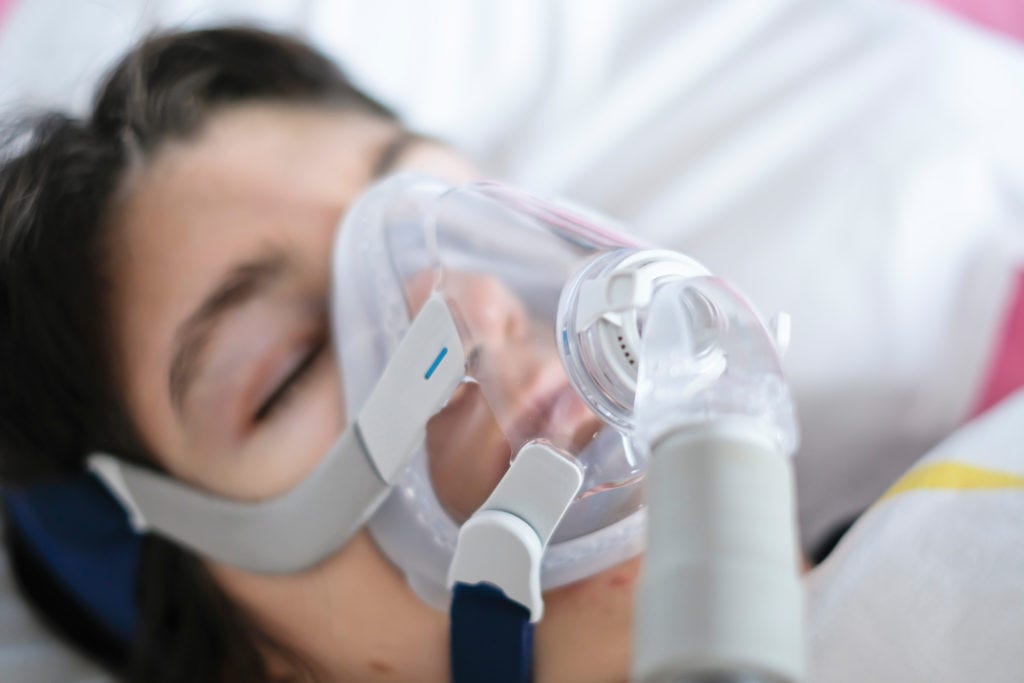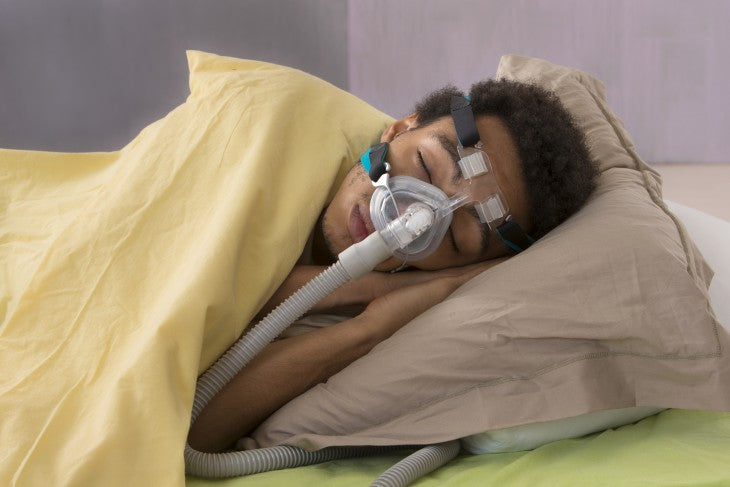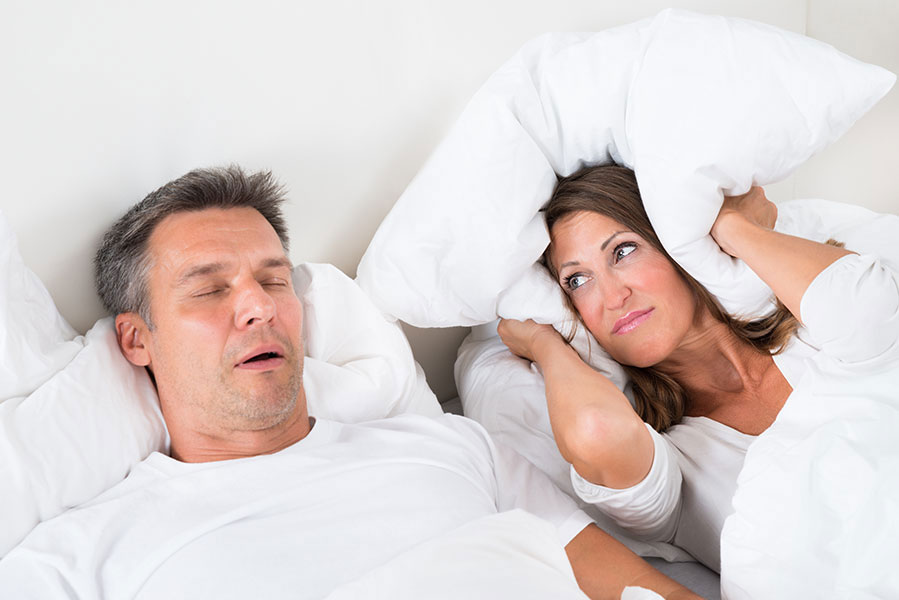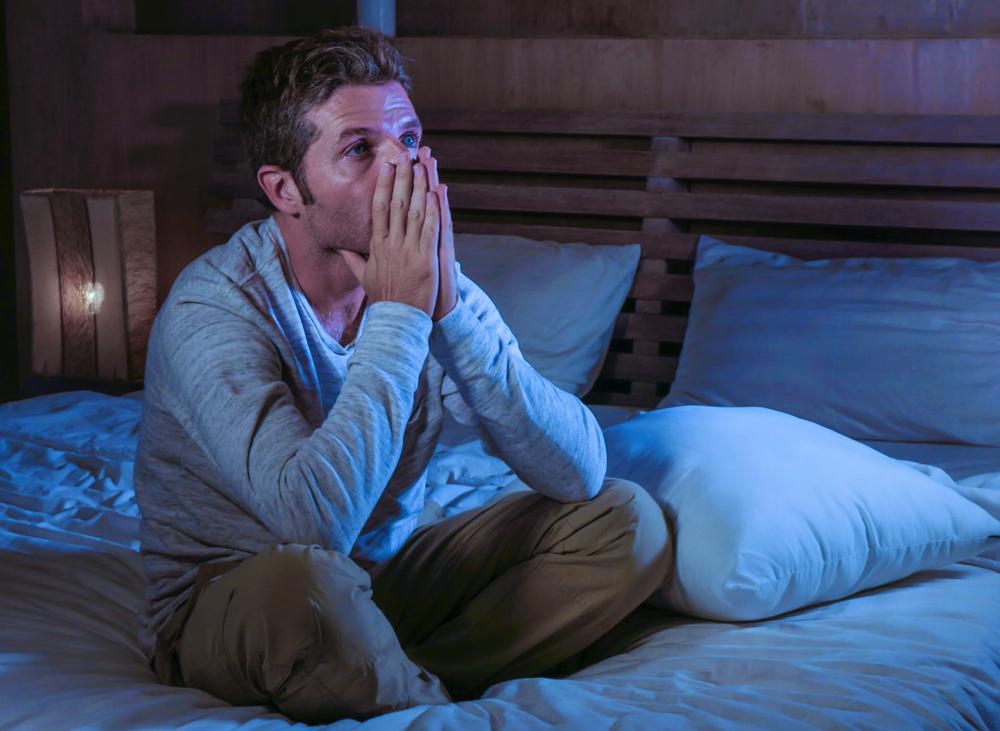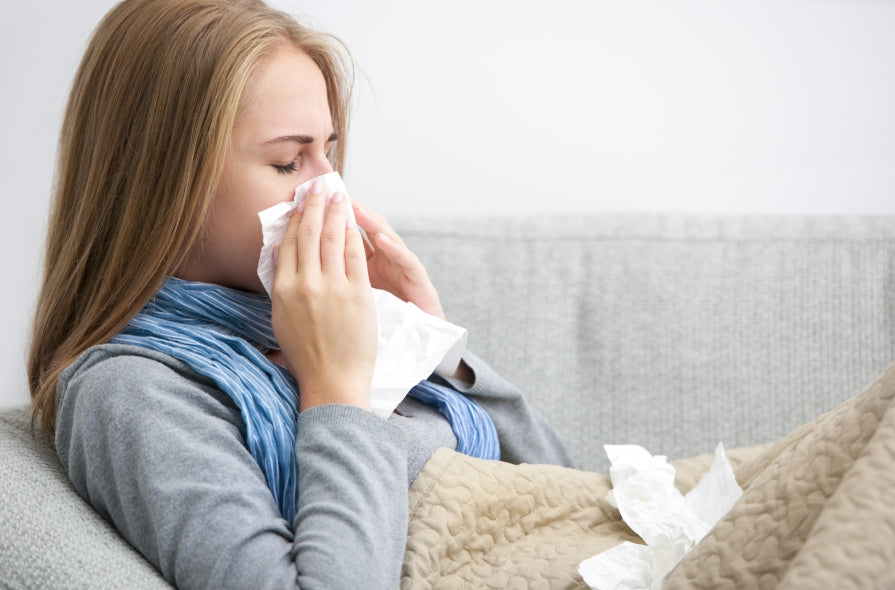News
Using CPAP Machine in the Hot Weather
wp:paragraph Summer may officially be around the corner, but for many places in the world (especially in some parts of Canada right now), the hot and sunny weather had already arrived in full force and many of the days are long and warm. While this may get you excited for all of the good things about summer, you may be dreading the sleepless nights that come with the hot and sticky weather, especially if you suffer from sleep apnea. /wp:paragraph wp:paragraph No one enjoys the uncomfortable feeling of trying to sleep when it’s hot, especially if you wear a CPAP machine at night. While you may be tempted to skip your CPAP therapy just for a night or two, don’t do this! Not only will your sleep apnea symptoms get worse, you will have even more trouble sleeping than you did before, which can make you feel tired and groggy during the day. /wp:paragraph wp:paragraph Six tips for surviving the heat with your CPAP machine: /wp:paragraph wp:list {"ordered":true,"type":"1"} Keep your bedroom cool: use a fan if necessary to properly circulate the air in the room and consider using blackout curtains to trap the cool air in the bedroom. Limit any excessive moisture in the bedroom: warm weather only adds moisture to the air, which can make sleeping very uncomfortable. If your bedroom is humid, consider getting a dehumidifier for the room. If your CPAP machine has a humidifier feature, you may want to turn this down for the warmer months. Clean your CPAP machine regularly: not doing so can lead to mold growth and the oils and sweat from your body can cause the parts of the mask to break down quicker than normal. Any padding with your mask may also need to be replaced a little more frequently. Check out CPAP Supplies and Accessories - PAPSmart Canada for replacement of your CPAP parts. Keep your sleep schedule consistent every night and don’t deviate from your sleep routine! Now is more important than ever to practice proper sleep hygiene. Stick to healthy diet and exercise habits during the daytime: also be sure to practice safe sun habits such as wearing sunscreen. Speak to your doctor for tips if you are still having trouble sleeping in the hot weather at night. /wp:list
about Using CPAP Machine in the Hot WeatherThe Connection between Sleep Apnea and Mental Health
wp:paragraph Sleep plays an incredibly important role in both your mental and physical health overall. It is generally recommended by experts that you get 8-10 hours of sleep per night but if you are suffering from an untreated mental health disorder, you may find yourself experiencing numerous bouts of insomnia and get considerably less sleep at night. /wp:paragraph wp:paragraph It can be even worse if you suffer from sleep apnea. Many studies have shown that there is a very strong connection between sleep apnea and your mental health. /wp:paragraph wp:paragraph How sleep apnea affects your mental health /wp:paragraph wp:paragraph Those who suffer from Obstructive Sleep Apnea (OSA) have been known to experience insomnia which leads to mood swings, fatigue, poor concentration and irritability throughout the day. If you have multiple episodes of OSA that are left untreated, this can deprive your brain of oxygen, which can lead to many serious mental health conditions such as depression, anxiety, psychological distress and suicidal thoughts. /wp:paragraph wp:paragraph What is even more alarming is that the symptoms for sleep apnea and many mental illnesses are very much the same. This is why it is extremely important to seek help with any symptoms you may have for mental illnesses. Leaving either sleep apnea or any mental illnesses untreated can lead to some serious effects on your health in the long term. /wp:paragraph wp:paragraph How to improve your mental health if you have sleep apnea /wp:paragraph wp:list Avoid using technology before bedtime. Try not to nap during the day (if you absolutely must nap, keep it short so you can still stick to your proper bedtime routine. Set a timer if you need to) Avoid caffeine or other stimulants close to bedtime (including alcohol). Maintain the same bedtime routine every night. If you use a CPAP machine at night, don’t skip your treatment, even for one night! /wp:list wp:paragraph If you are experiencing any mental health distress, please do not hesitate to speak to your doctor to get the proper help. /wp:paragraph
about The Connection between Sleep Apnea and Mental HealthFour Myths about Sleep Apnea
wp:paragraph Sleep apnea, as you may know, is a condition that causes a pause in your breathing for approximately 10-30 seconds while you sleep and can happen up to several times in a night. There are many myths and misinformation around sleep apnea given how complex the condition can be. Here are four myths you may or may not have heard about sleep apnea. /wp:paragraph wp:paragraph 1. Only older adults get sleep apnea. /wp:paragraph wp:paragraph This is not true. While most cases of sleep apnea occur in middle-aged adults, you can develop sleep apnea at any age. It can even occur in children! That said, the risk of developing sleep apnea does increase as you get older, however the condition is not at all based solely on age. /wp:paragraph wp:paragraph 2. Sleep apnea is the same thing as snoring. /wp:paragraph wp:paragraph Not necessarily. Snoring is very common in adults, however it is actually different from sleep apnea. Snoring is certainly a common symptom that leads to a sleep apnea diagnosis, however you can still snore at night and not have sleep apnea. /wp:paragraph wp:paragraph 3. Only people who are overweight can develop sleep apnea /wp:paragraph wp:paragraph While the risk of developing sleep apnea does increase if you are overweight, this is not necessarily true. Loosing weight and adapting a healthier lifestyle can certainly lessen the severity of your sleep apnea symptoms, but this is not a cure. It is important to speak with your doctor if you think you have sleep apnea and they can conduct the proper testing and discuss treatment options to help you sleep better. /wp:paragraph wp:paragraph 4. Sleep apnea will go away on it’s own /wp:paragraph wp:paragraph False! Sleep apnea is a serious condition that needs medical attention. If left untreated, this can cause a number of health issues including stroke, diabetes, heart disease and mental illnesses such as depression. Depending on the severity of your sleep apnea, your doctor may recommend some lifestyle changes if you have a mild case. More severe cases of sleep apnea may require you to wear a CPAP mask at night in order to treat it (more information about CPAP masks and accessories can be found at papsmart.com). /wp:paragraph
about Four Myths about Sleep ApneaIs Remote Working Affecting Your Sleep?
wp:paragraph Once the Covid-19 pandemic hit back in early 2020, many office employees found themselves all of a sudden having to work from home. While the remote working life certainly has its convenience and comforts, let’s not forget the many challenges it presents, such as navigating Zoom meetings and other new technologies as well as a bit of a setback in healthy habits including diet, exercise and yes, sleep. /wp:paragraph wp:paragraph Why remote workers are known to struggle with sleep /wp:paragraph wp:paragraph According to a recent study done by the CDC, many adults who work remotely as a result of the pandemic have not been getting the recommended amount of sleep at night, and a few have reported experiencing insomnia as well. This can cause you to feel tired during the daytime when you need to be alert and productive. Having both your personal and professional life co-exist in the same space can be tricky, and you may find yourself having work on your mind as you go to bed a little more than usual. /wp:paragraph wp:paragraph Many workers have reported working much later hours at home than they typically would at the office, and proper bedtime habits have taken a bit of a backseat. In addition, too much time on your phone or computer at night can interfere with your REM sleep cycle, causing insomnia and other sleep ailments. You may also find yourself making more frequent trips to the kitchen throughout the day to grab a snack or a cup of coffee but overdoing this can also affect how you sleep at night. /wp:paragraph wp:paragraph A few tips for getting the best sleep while working from home /wp:paragraph wp:list Try not to use your bedroom as an office. Set a designated workspace in your home that is separate from where you sleep. More importantly, don’t work from your bed! Try to stick to as close to a normal workday routine as you can, even at home: shower and get dressed in the morning, eat a proper breakfast, take a proper break for lunch and stop working for the day once the working hours have ended. Resist the urge to check work emails and complete work projects in the evenings, or anytime outside of the working hours. Go to bed at the same time every night, and get at least 8 hours of sleep per night, just like you would if you had to commute to an office the following day. Be sure to practice proper sleep hygiene too, including limiting technology devices before bed and sticking to a proper bedtime routine. /wp:list
about Is Remote Working Affecting Your Sleep?I think I have sleep apnea, now what?
wp:paragraph For many people, a sleep apnea diagnosis, or even the possibility of having sleep apnea without a proper diagnosis can feel overwhelming and scary. It is important to know that this is a condition that is very treatable and can put you on track to getting a good night’s sleep again. Not treating a possible sleep apnea diagnosis can lead to many serious health problems. /wp:paragraph wp:paragraph When to see a doctor; /wp:paragraph wp:paragraph Some of the symptoms, such as loud snoring, insomnia, and waking up with a dry mouth or headache in the morning can be an occasional occurrence, however if this is something that is happening very consistently and affects how you function in the daytime, then it is time to make an appointment with your doctor. Also, if you are having episodes in which you stop breathing during sleep, this can be very serious and needs to be addressed by a medical professional. Too often, sleep apnea patients have no idea this is happening and it is another person (such as your spouse) that is observing this. /wp:paragraph wp:paragraph How to treat sleep apnea; /wp:paragraph wp:paragraph Most mild cases of sleep apnea can be treated with lifestyle changes such as loosing weight or quitting smoking. Everyday allergies can also cause mild forms of sleep apnea, in which an allergy treatment will address it. /wp:paragraph wp:paragraph For those with moderate to severe sleep apnea, your doctor may recommend a therapy called Continuous Positive Airway Pressure (CPAP). This is a mask that is worn overnight and is designed to deliver air pressure that will keep the passages of your airway open throughout the night, and will address any breathing episodes you may have while sleeping. The CPAP machine may seem overwhelming at first, but this has proven to be an extremely effective option for those who suffer from more severe forms of sleep apnea. /wp:paragraph wp:paragraph There are lots of different types of masks, machines and accessories out there, and you will need to find the one that is the best fit for you. Your doctor will have the best advice on this, or will be able to recommend you to a specialist who can answer any questions you have about the CPAP machine and how it works. There are also tons of options available on CPAP Machines - PAPSmart Canada, including masks, machines and other supplies and accessories. /wp:paragraph
about I think I have sleep apnea, now what?The Importance of Cleaning Your CPAP Device
wp:paragraph If you suffer from sleep apnea and you regularly use a CPAP Machine at night, you may be used to the fact that you have to keep your device clean on a regular basis. Not sticking to a regular cleaning routine for the various parts of your CPAP Device can result in the parts breaking down and wearing out much more quickly than they are supposed to. Having to replace some of these parts can be extremely costly. Worse, your CPAP therapy may not work to its full potential if the machine parts go too long in between cleanings. /wp:paragraph wp:paragraph However, if you take the time to clean your CPAP machines and its parts of dust and facial oils, the parts can last you quite a long time before requiring replacement and overall, the CPAP therapy will work the way it’s supposed to. /wp:paragraph wp:paragraph How often do I need to clean my CPAP device? /wp:paragraph wp:paragraph CPAP Devices and their parts can get dirty very quickly as a result of dust and facial oils. Most parts will benefit from a clean at least once a week, however some parts such as the headgear cushions, tubing and humidifier chamber may need to be cleaned daily, especially if they are touching your face. /wp:paragraph wp:paragraph A few tips for cleaning your CPAP device and parts /wp:paragraph wp:list Check the manufacturers warranty for specific cleaning instructions Take the mask apart to give it the best clean Hand wash the parts of your mask using lukewarm tap water, a soft bristle brush and a mild soap Do not use any soaps containing harsh chemicals such as bleach or alcohol. A mild medical grade soap will do just fine (some mask manufacturers may offer a cleaning solution for their CPAP devices) Do not wash your mask parts in a washing machine or dishwasher and do not leave them in direct sunlight to dry Wash your face before using the mask in order to keep it clean and prolong its life If you notice any parts with cracks or other deficiencies, be sure to have the part replaced as soon as possible! /wp:list
about The Importance of Cleaning Your CPAP DeviceThe Truth about Using Cannabis as a Sleep Aid
wp:paragraph One of many questions that have become asked a little more in the past few years: can I use cannabis or medical marijuana to help me sleep? /wp:paragraph wp:paragraph While the conversation around cannabis may have been a bit controversial at times (and still is) there has been a lot more research conducted on cannabis use over the past few years since it has become legal in Canada. There is still a lot that is to be learned, especially on how it affects your sleep cycle, but since many people choose to turn to cannabis as an aid to fall (and stay) asleep, it is important to know just how this can influence your body and sleep cycle overall. /wp:paragraph wp:paragraph So, what are the effects of cannabis use on sleep? /wp:paragraph wp:paragraph In general, many people use cannabis as a form of relaxation, and to help aid other ailments with the body, such as chronic pain or mental issues such as anxiety. When it comes to sleep, many adults have found cannabis to be effective as a sleep aid, especially if you suffer from insomnia. It can be known to help you fall asleep faster and stay asleep as well. It can give you more of a “deep sleep” and has occasionally been known to promote some vivid dreams as well. But like any other substance, there can be some other side effects from its usage and it may not work for everyone. /wp:paragraph wp:paragraph Will using cannabis before bedtime work for me? /wp:paragraph wp:paragraph While a lot of the research on cannabis and sleep is still relatively new and there is still so much about it to be learned, the one thing medical experts warn is that using cannabis too much could impair your REM sleep cycle, which is vital for getting a good night’s sleep. Those who suffer from moderate to severe sleep apnea will need to especially be aware of the effects of cannabis before bedtime, however if you use a CPAP device at night (like the ones found on CPAP Machines - PAPSmart Canada ) this can be less of an issue. /wp:paragraph wp:paragraph Studies completed in the past few years have shown that medical cannabis may not necessarily be an effective aid for long term use, however using a little bit before bed can sometimes be beneficial, as long as you don’t overdo it. If you are still unsure, the best course of action would be to speak to your doctor for advice. Depending on your overall health, cannabis may not be the best course of treatment for everyone, however your doctor can recommend what is best to help you with insomnia. Like any other substances, please be sure you are using cannabis and/or medical marijuana responsibly. /wp:paragraph
about The Truth about Using Cannabis as a Sleep AidHow Stress Affects your Sleep
wp:paragraph It is no secret that most of us have experienced stress in one way or another, especially these days seeing as we are still in the middle of a global health pandemic. Stress is something that can influence the body in so many ways, including how you sleep. If you have ever found yourself tossing and turning in the middle of the night and you cannot seem to fall asleep, you are not alone. /wp:paragraph wp:paragraph How to tell if stress is causing your poor sleep /wp:paragraph wp:paragraph First, getting poor sleep at night can have a significant effect on how you function during the daytime. If you are finding yourself having low energy, trouble concentrating, and you are in a negative mood, then your sleep may be to blame. /wp:paragraph wp:paragraph Sleepless nights do happen to all of us every now and then, however it becomes a concern when this happens many nights in a row and if affects how you function in the daytime. /wp:paragraph wp:paragraph With everything going on in the world these days, it is easy to have a lot on your mind when it is time to go to bed, but do not let this take a toll on your sleep routine. If this is not addressed and dealt with, this can lead to more significant health conditions. /wp:paragraph wp:paragraph How to reduce stress levels to improve your sleep /wp:paragraph wp:paragraph Whether your stress is caused by the current events in the world, or factors in your personal life such as work or relationships, it is important to identify the source of the stress and try to address it. While it may seem challenging and it may be difficult to resolve, knowing what is causing your stress can be important to helping you sleep better. /wp:paragraph wp:paragraph There are few other healthy habits to incorporate in the daytime that can help you sleep better at night: /wp:paragraph wp:list Limit the time you spend on electronic devices Get in some exercise during the daytime Stick to eating a healthy diet Limit your caffeine and alcohol intake Practice some mindful meditation techniques before bedtime Seek support from family or friends Speak to your doctor if you have exhausted all your other options to no avail /wp:list
about How Stress Affects your SleepSleep and Seasonal Allergies
wp:paragraph If you are starting to wake up feeling a little stuffed up these days, you are not alone. Allergies are extremely common in the early spring months and this can greatly affect your sleep cycle. /wp:paragraph wp:paragraph Why are my allergies affecting how I sleep at night? /wp:paragraph wp:paragraph Many people experience seasonal allergies and/or flu like symptoms at this time of year thanks to significant changes in air pressure and the weather. This can affect your sleeping patterns in a big way, especially if you have sleep apnea and/or use a CPAP machine at night. Some people experience common cold symptoms such as headaches, sinus congestion or sore throat, that most often occurs in the morning, right as you wake up. Others (especially those with sleep apnea) may have a lot of nasal congestion at night that is making it difficult to sleep and causing insomnia. /wp:paragraph wp:paragraph With all of that said, having an “off” sleeping night for one night or more can affect how you function during the daytime and doing nothing will only make it worse. /wp:paragraph wp:paragraph How can I sleep better with allergies? /wp:paragraph wp:paragraph Dealing with seasonal allergies that affect your sleep can be unpleasant, however there are ways to help you to alleviate this: /wp:paragraph wp:list Try taking an over-the-counter antihistamine (such as Benadryl or Claritin) before you go to bed to help you sleep better. If you wake up with allergy symptoms then you can take one in the morning as well if needed (just be sure to use a non-drowsy formula!) Don’t stray away from practicing good sleep hygiene. Stick to the same bedtime every night and stick to healthy diet and exercise routines during the daytime. Keep your bedroom cool and use a humidifier if necessary to help alleviate excessive dryness in the air. Check out this HumidX F20 humidifier - PAPSmart Canada If you use a CPAP machine, don’t skip the use of your machine for one night, even if you are feeling unwell. It is more important now than ever to keep up with your CPAP therapy. You may even want to consider giving your machine an extra cleaning to better help you sleep at night Be sure to seek advice from your doctor if the problem persists. /wp:list
about Sleep and Seasonal Allergies